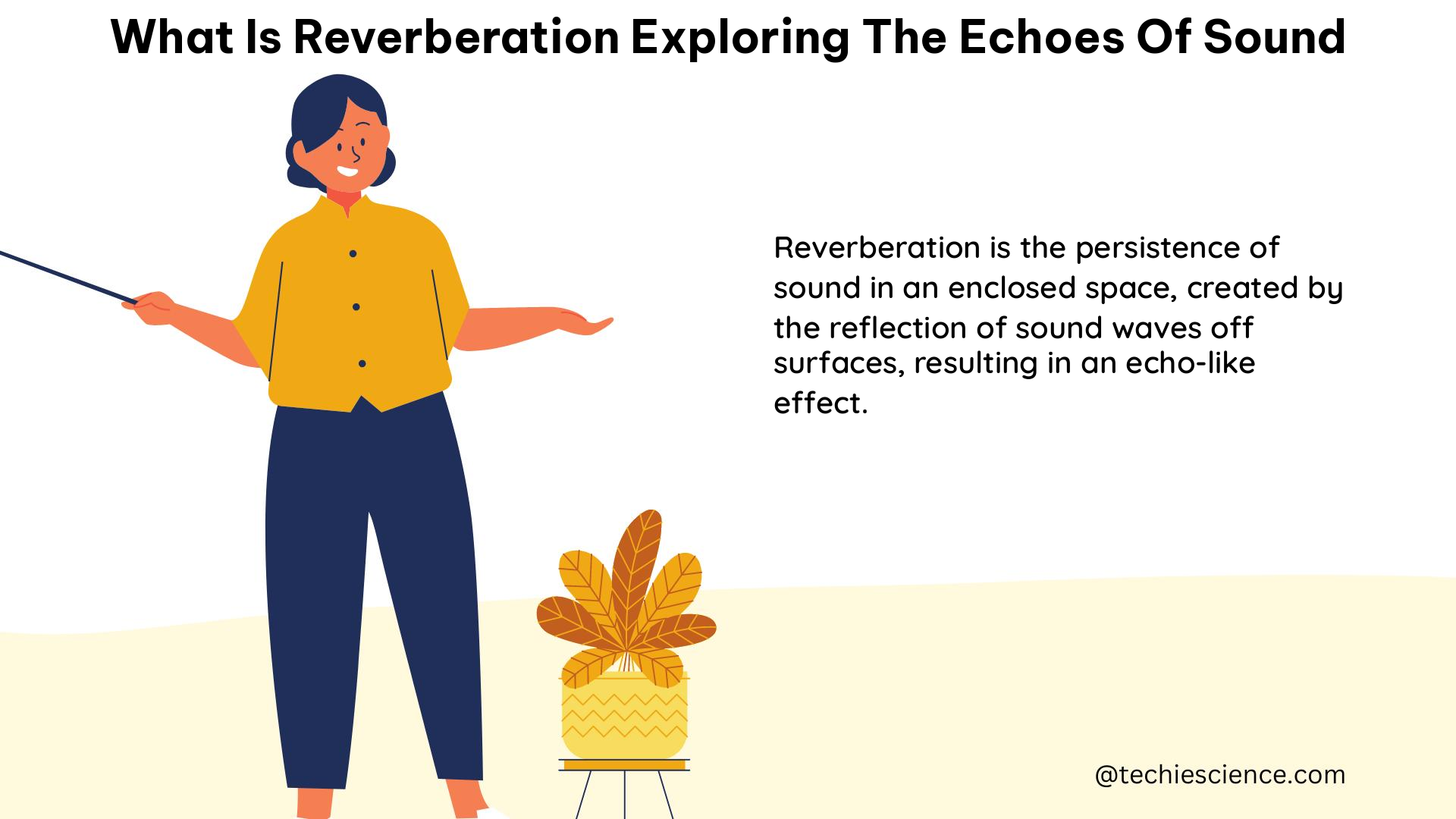Reverberation is a fundamental concept in the physics of sound, describing the persistence of sound after a source has been stopped. It is characterized by low-level echoes that create acoustic clutter and noise, with higher frequencies attenuating faster than lower ones in natural conditions. Understanding the time gap between the original sound and its reflections is crucial in distinguishing echoes from reverberation.
The Physics of Reverberation
Reverberation Time (RT)
The reverberation time (RT) is a crucial parameter in the study of reverberation. It is defined as the time it takes for the sound level to decay by 60 dB after the sound source has been stopped. This can be calculated using the formula:
Reverberation Time (RT) = 0.161V / A
where:
– V is the volume of the room in cubic meters
– A is the total absorption in the room, measured in sabins
This formula allows for the prediction and analysis of reverberation time in various room environments.
Frequency Dependence
Reverberation is a frequency-dependent effect, with higher frequencies attenuating faster than lower frequencies in natural conditions. This is due to the different absorption rates of materials at different frequencies. For example, soft furnishings and people tend to absorb higher frequencies more effectively, while hard surfaces reflect lower frequencies more readily.
Time Gaps and Echoes
The time gap between the original sound and its reflections is crucial in distinguishing echoes from reverberation. If the time gap is more than 0.1 seconds, distinct echoes are heard, while gaps less than 0.1 seconds result in reverberation, where the brain can no longer distinguish individual sounds.
Measuring and Analyzing Reverberation

Sound Level Meters and Software
In the context of sound measurement, reverberation is often measured using a sound level meter. The data collected can then be analyzed using software like Cirrus NoiseTools, which can automatically detect suitable data and provide calculations in accordance with the EN ISO 3382-2 standard.
Experimental Measurements
Physics students can also conduct experiments to measure reverberation time and analyze the results using the formula mentioned above. This may involve setting up a controlled environment, generating a sound source, and measuring the decay of the sound over time.
Reducing Reverberation
To reduce reverberation in a room, sound-absorbing materials can be introduced, such as:
- Open windows
- Carpets
- Cushions
- People
These materials absorb sound and reduce the number of reflections, leading to less reverberation.
Reverberation in Physics Education
For physics students, understanding reverberation involves studying the physics of sound, including wave propagation, absorption, and reflection. This knowledge can be applied in various fields, such as:
- Architectural acoustics
- Audio engineering
- Musical instrument design
- Noise control
By conducting experiments, analyzing data, and applying theoretical concepts, physics students can gain a deeper understanding of the complex phenomenon of reverberation and its practical applications.
Conclusion
Reverberation is a critical concept in the physics of sound, with measurable and quantifiable parameters such as reverberation time, frequency dependence, and time gaps between original and reflected sounds. By exploring the echoes of sound, physics students can deepen their understanding of wave propagation, absorption, and reflection, and apply this knowledge to real-world problems in acoustics and beyond.
References
- What’s the Difference Between Echo and Reverberation?
- Reverberation time as a predictor of speech intelligibility
- Reverberation and its effects on the human body: A review
- Reverberation
- Echoes and Reverberations

The lambdageeks.com Core SME Team is a group of experienced subject matter experts from diverse scientific and technical fields including Physics, Chemistry, Technology,Electronics & Electrical Engineering, Automotive, Mechanical Engineering. Our team collaborates to create high-quality, well-researched articles on a wide range of science and technology topics for the lambdageeks.com website.
All Our Senior SME are having more than 7 Years of experience in the respective fields . They are either Working Industry Professionals or assocaited With different Universities. Refer Our Authors Page to get to know About our Core SMEs.